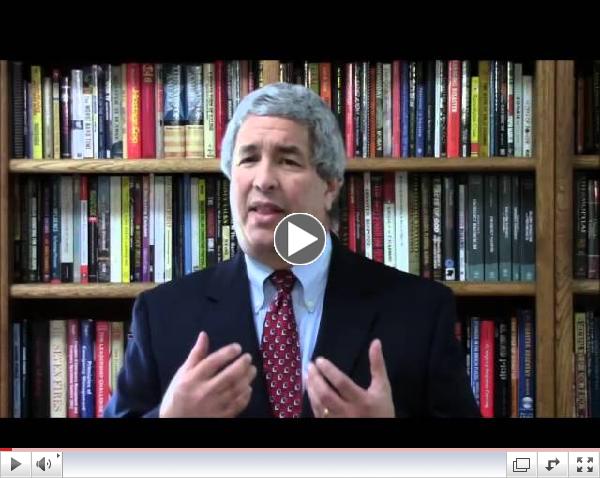|
Exploring Emergency Management & Homeland Security
|

Operational Readiness in Emergency Management
by Timothy (Tim) Riecker
Back in 2017 I wrote a piece on
defining operational readiness. It's a topic, which, after some recent discussion with a colleague, I think bears revisiting and expanding upon. Specifically, how we apply it in emergency management, or not. Readiness is really a final comprehensive perspective of preparedness. That is, once you have reached a certain level of preparedness, you can be ready, but being prepared doesn't necessarily make you ready.
Preparedness is generally perceived as an ongoing process, though a state of readiness is typically a snapshot in time.
It struck me that the military tends to have more of a focus on readiness, while emergency management has a focus on preparedness. While you will find both concepts within the doctrine of emergency management and military, the actual applications are considerably skewed. After my discussion, I began to wonder why there this difference exists and what we can learn from it.
Having worked a considerable amount with various National Guard elements, I've come to highly respect their processes and their endeavor for readiness. Not that we don't have similar rigor in emergency management, but the focus seems to be more on the processes of preparedness rather than a state of operational readiness. Sometimes the differences are so subtle that I have to sit back and think them through, but they are certainly there, and they are meaningful. Given the military's focus on operational readiness, they serve as a good source of information, though it needs to be properly filtered for application to emergency management.
As I've applied more thought to this, I've assembled a refined definition of readiness as it applies to emergency management, that being:
[Readiness is the nexus of benchmark outcomes of preparedness matched with the needs of a specific kind and type of response. A state of operational readiness is achieved when all applicable preparedness benchmarks are met and the organization is willing and able to adequately leverage the resulting capabilities against a corresponding threat or hazard.]
I've put together a graphic I think reasonably represents this relationship below. Readiness is represented by a cloud because, as I explore further in this writing, it is itself rather amorphic and complex.
____________________________________________
Tim Reicker is a founding member, partner and principal consultant with Emergency Preparedness Solutions, LLC, a private consulting firm serving government, businesses, and not for profit organizations in various aspects of emergency and disaster preparedness.
|
|
Bernstein Crisis Management
|
 Quick Coronavirus Crisis Communications Tips Quick Coronavirus Crisis Communications Tips
by Erik Bernstein
With coronavirus news disrupting business across the globe, we've been asked by quite a few clients, colleagues and friends what exactly they should be doing about a couple common areas of concern. Due to this interest, we felt it would be a good topic to cover here.
What are you telling clients who have employees in China or elsewhere who may have been exposed to the virus?
Unfortunately we have several clients in exactly this situation. We have advised them to follow the specific guidelines offered by WHO, CDC, the US State Department and Chinese Health Authorities. That way even if people fall ill, company spokespersons can say they have met or exceeded any requirement for prevention and response.
Most importantly, we have advised clients to communicate with compassion for all those impacted and to do what they can to soften the blow of any necessary restrictions.
How does a company tell an employee they may need to be in quarantine, possibly for 14 days or more?
While nobody wants to command someone to be quarantined, a company doesn't actually tell an employee what to do in that situation. That direction would come from a health authority and hence the onus would be on that authority, not on the company.
What else should we be doing on a day-to-day basis to reduce risk from coronavirus?
The best thing you can be doing right now is staying on top of the latest news and things like travel recommendations. If a trip can be postponed, it might be a good idea. Business needs to continue, but in the end it's good crisis prevention to protect your most important assets, which of course includes valued employees and staff.
Here are some additional thoughts from Johnathan Bernstein:
Headless chickens running amok appear to be in charge of many organizations - including media outlets - in response to the spread of COVID-19 globally and its imminent status as a pandemic.
If we can share one piece of advice right now to everyone out there worrying about the issue it's this - Freakout Crisis Management is not an effective means of responding.
To most people, COVID-19 is not lethal health threat. But, if your organization has operations dependent on products or people from an area heavily impacted by this coronavirus, you probably have a need for significant crisis management, including crisis communications for all impacted stakeholders, internal and external. How are you managing the interruption in a manner that will result in the least-possible impact on stakeholders? Are you communicating in a manner that demonstrates compassion, confidence and competence? Remember, your own employees are a critical audience and PR reps for your organization whether you want them to be or not. That type of response requires a plan and people trained to implement the plan. That's the type of thinking that keeps you away from Freakout Crisis Management, that's a Best Practice in Crisis Management.
__________________________________________
______________________________________________
Erik Bernstein is Vice President of Bernstein Crisis Management, a specialized firm dedicated to providing holistic strategies for managing crisis situations.
|
|
|
| The Next Pandemic: Lessons from History |
This PrepTalk by historian John M Barry was given two years ago but is remarkably relevant to the current concern over the coronavirus. Barry examines some of the lessons learned from the 1918 influenza pandemic and discusses what works and what doesn't work in preparing the public for a pandemic. His description of how a pandemic might unfold is both chilling and realistic. A discussion guide to accompany the video can by found on the PrepTalk website. |
The following are excerpts from my blog
Canton on Emergency Management. Please visit my blog to see the rest of my articles.
Water is an absolute essential for disaster survival but there are numerous barriers to properly storing it. A new company offers a potential solution.
|

M
y Blogs
Follow Me
|
|

Welcome to the February edition of E
mergency Management Solutions
.
The rapid spread of the coronavirus is, of course, on everyone's mind but the most difficult job in emergency management is maintaining a balance between a current crisis and other potential events. Not all communities will be affected the same way by a pandemic and there may well be more critical hazards facing communities. Stay focused on risk!
This month, Tim Riecker shares some thoughts on operational readiness as a concept that can enhance your ability to respond to crisis. Erik and Johnathan Bernstein share some quick thoughts on crisis communications in dealing with the coronavirus.
Regards,
|
|
_
________________________________________________
Pandemic Planning
_________________________________________________
Over the past week I've received several calls from colleagues and friends in the media about what emergency managers should be doing about the coronavirus crisis. In the course of those discussions, several themes emerged that reinforce the need for emergency managers to think strategically rather than just focusing on operational issues.
Localize Your Risk
One of the things we learned in the previous pandemic scare was that we need to consider local impacts rather than global ones. That is, tying triggers in our plans to a national or international warning level means that we run the risk of being too late to intervene in a crisis or overreacting to one.
The city of San Francisco recently declared a state of emergency. Was this premature? When you are a major port of entry, reliant on tourism, have a large Asian population, and strong economic ties to China, you have an elevated risk and the decision is a prudent one. Remember that an emergency declaration removes a lot of purchasing restrictions and allows access to many facilities.
______________________________
_______________________
________
If you are having trouble viewing my featured article, try clicking on the link at the top of the page. You can always find my articles in the white paper section of my blog site, Canton on Emergency Management.
|
|
Resources
FEMA Releases 2020 Homeland Security Exercise and Evaluation Program (HSEEP) Doctrine
FEMA has released the revised 2020 HSEEP Doctrine. This update incorporates feedback and input from exercise planners and practitioners across the country and ensures that HSEEP doctrine, the training course, and corresponding documents continue to best meet the needs of the whole community.
With the release of the new 2020 HSEEP doctrine, FEMA will be hosting webinars to provide information, highlights, and changes as a result of the review process. The current dates for these webinars are:
- March 3 at 3:00pm EST
- March 10 at 9:00am EST
- March 17 at 3:00pm EST
- March 24 at 9:00am EST
- March 31 at 3:00pm EST
The webinars will continue until May 15, 2020. Please visit the HSEEP webpage to get additional dates and times:
https://www.fema.gov/hseep.
The URL for the Webinars is:
https://fema.connectsolutions.com/hseep-2019-review/ and the call-in information is: 1-800-320-4330 Pin 504024#
There is also an Information Sheet and Frequently Asked Question sheet available on the HSEEP website.
HSEEP templates and the HSEEP course are currently being updated and will be released sometime in late spring/early summer.
SchoolSafety.gov Launched
The Federal School Safety Clearinghouse has announced the launch of
SchoolSafety.gov, a website that provides the academic community with a one-stop shop for school safety best practices and resources to create a safe and supportive learning environment where students can thrive and grow.
SchoolSafety.gov includes:
- The School Safety Readiness Tool, an assessment which assists users in evaluating their respective school's overall safety posture across 10 foundational elements of school safety and generates a tailored Action Plan with task prioritization, options for consideration, aligned resources, and grant opportunities specific to individual needs;
- A Secure Information Sharing Platform for designated school personnel to share school safety ideas, practices, and tactics in a protected environment; and
- A wide array of resources and Best Practices on key school safety topics to assist with building awareness within the school community to promote vigilance and build capacity to respond to incidents.
___________________________________
Professional Development Opportunities
June 1-4, 2020
Emmitsburg, MD
The 2020 symposium theme is "Imagination, Improvisation, and Innovation in Emergency Management Education."
Nov. 13-18, 2020
Long Beach, California
The goal of the IAEM Annual Conference is to improve knowledge, competency level and collaborative skills. IAEM accomplishes this by attracting relevant high-profile speakers to address current topics and practical solutions.
|
|
 The Great Influenza: The Epic Story of the Deadliest Plague in History The Great Influenza: The Epic Story of the Deadliest Plague in History
It's been over 100 years since the influenza pandemic in 1918, yet it still has lessons to teach. Unlike the typical disasters that demonstrate high levels of altruism, communities and individuals were isolated by fear of the disease leading to a high degree of social isolation.
In this classic work, historian John Barry traces not only the course of the disease but the many missteps that were taken in trying to treat or isolate the disease: questionable treatments, distorted information, ineffective quarantines.
The mistakes of 1918 are easily made and we continue to see examples. Barry's book is a reminder of the lessons history can teach if we only pay attention.
______________________________________
|
Emergency Management: Concepts and Strategies for Effective Programs
Second Edition
by Lucien G. Canton
This book looks at the larger context within which emergency management response occurs, and stresses the development of a program to address a wide range of issues. Not limited to traditional emergency response to natural disasters, it addresses a conceptual model capable of integrating multiple disciplines and dealing with unexpected emergencies.
|
|
Need a speaker for your next conference? I offer keynotes, seminars and workshops.
 |
|
Three Reasons Why I'm the Right Speaker for Your Conference
|
|
|
Speaking Engagements
Emergency Preparedness & Response Master Class
Indianapolis, IN
April 5, 2020
|
|
| |
|